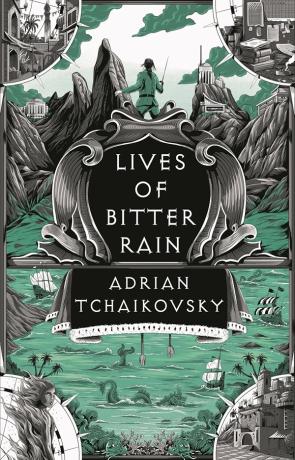Children reading more fantasy than science fiction

For the very long time many children (and adults) have been enthused by science fiction and by the immense expanse that is space, a fascination which has set imaginations alight as early as the 1920's by magazines like Amazing Stories (also known as Amazing Science Fiction) along with early authors including HG Wells, Jules Verne and Edgar Allen Poe.
These early publications became catalysts for later talented authors like Isaac Asimov, Arthur C Clarke, Robert A Heinlein and Phillip K Dick. The rise of these now legendary science fiction authors created a golden age of science fiction in the 1950's and this was further encouraged by the Apollo space program. But these authors were not just science fiction writers, they were also future-ologists, with many of their predictions becoming remarkably accurate.
The impact that the space program has had on science education and interest in science fiction cannot be understated and has inspired children the world over to enjoy sci fi novels and magazines. Some of these children became so enamoured that they went on to become scientists, with a desire to turn science fiction into science fact. There is no greater drive than the imagination.
This interest held until the 1970's when it was sent into the stratosphere, partly by the release of a low budget unheard of film by a little known director and a relatively unknown cast... Star Wars (which became the highest box-office-grossing movie in history until E.T. in 1982).
Star Wars encouraged a whole new generation to enjoy science fiction and this interest was kept alive by the 2 star wars sequels, films like ET, Blade Runner and the Black Hole and authors like Douglas Adams, Harry Harrison, Isaac Asimov, Arthur C Clarke and Phillip K Dick.
The 1980'2 and 1990's saw massively popular television series such as Star Trek and Babylon 5 which helped to perpetuate this trend. The imagination of Gene Roddenberry (the creator of Star Trek) really brought science fiction to the masses and became a world wide success. Many of the inventions in Star trek have since become science fact, with many more on the brink of becoming a reality.
Since the millennium there has been a steady but sharp decline, being replaced by an interest in fantasy fiction. This interest in fantasy is due in part to the surge of fantasy films like the Lord of the Rings, Harry Potter and the Chronicles of Narnia and Twilight along with novels for young adults such Harry Potter (again). This trend has since seen a rise to a new generation of authors writing fantasy for young adults and children such as Garth Nix, Joseph Delaney and Eoin Colfer (to name a few).
While this increasing interest of fantasy over Science Fiction is no bad thing in literary terms (as long as children read, that's the main thing) interest in science fiction has historically raised awareness (and interest) in space and technology of many children who have then gone on to pursue careers in science.
There are many people that see science fiction as a primer for technological interest, but this isn't shared universally. Buzz Aldren himself (the original man on the moon) recently criticized science fiction as creating "expectations that are far unrealistic" and making space exploration pale in comparison. Personally I disagree with this assessment, if there hadn't been the passion and imagination fueled by science fiction, would we really have reached the moon when we did?
While the interest in reading science fiction may have diminished, science fiction television remains as strong as ever with high quality series like Stargate and Doctor Who along with the recently re-imagined Star Trek film (which is hoping to breathe new life into the franchise) and recent box office successes like Transformers and it's sequel.
So will the future see less scientists or will the new generation of scientists have grown up with a more realistic expectation of science?
Only time will tell...
News Archives
- August 2024
- July 2023
- April 2023
- February 2023
- September 2022
- March 2022
- February 2022
- July 2021
- June 2021
- April 2021
- March 2021
- January 2021
- October 2020
- September 2020
- June 2020
- March 2020
- May 2019
- January 2019
- November 2018
- January 2016
- September 2015
- August 2015
- July 2015
- June 2015
- May 2015
- April 2015
- March 2015
- January 2015
- October 2014
- June 2014
- April 2014
- March 2014
- February 2014
- January 2014
- December 2013
- November 2013
- October 2013
- September 2013
- June 2013
- May 2013
- April 2013
- March 2013
- January 2013
- December 2012
- November 2012
- August 2012
- July 2012
- June 2012
- May 2012
- April 2012
- March 2012
- February 2012
- January 2012
- December 2011
- November 2011
- October 2011
- September 2011
- August 2011
- July 2011
- June 2011
- May 2011
- April 2011
- March 2011
- February 2011
- January 2011
- December 2010
- November 2010
- October 2010
- September 2010
- August 2010
- July 2010
- June 2010
- May 2010
- April 2010
- March 2010
- February 2010
- January 2010
- December 2009
- November 2009
- October 2009
- September 2009
- August 2009
- July 2009
- June 2009
- May 2009
- April 2009
- March 2009
- February 2009
- January 2009
- December 2008
- November 2008
- October 2008
- September 2008
